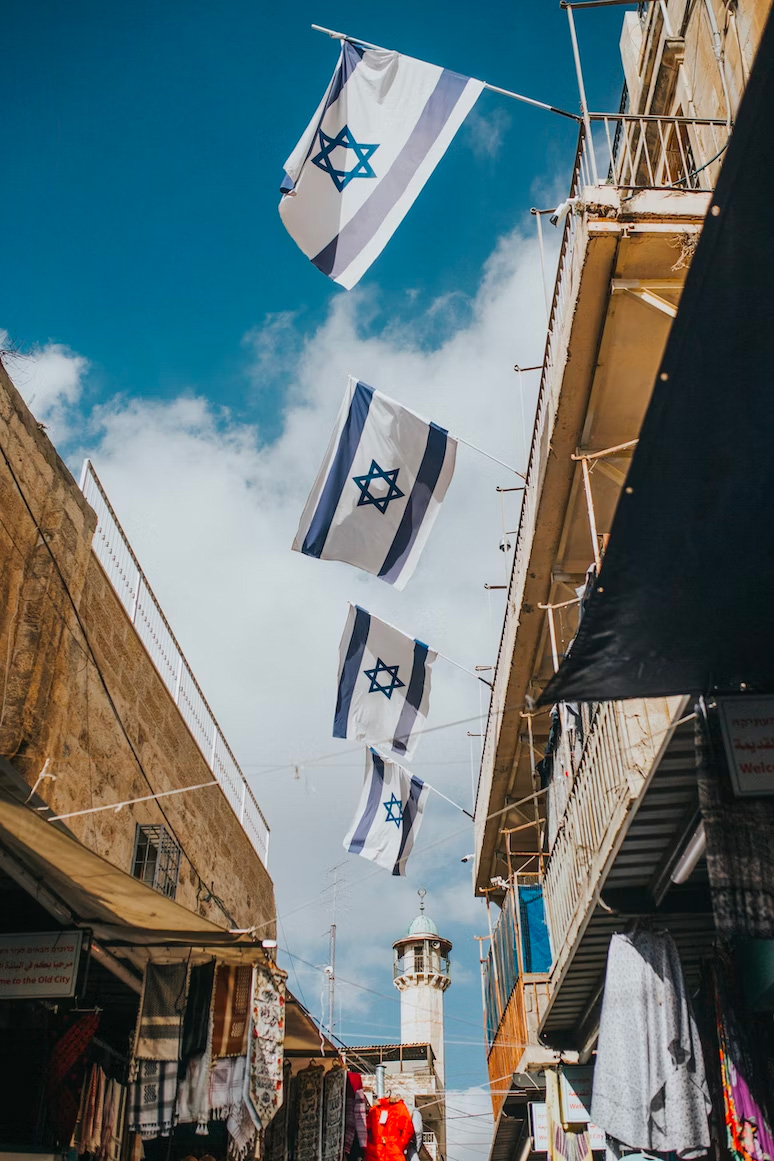6 minute read
Israel is a country you really need to have on your bucket list – for all kinds of reasons. It’s home to some of the holiest religious sites in the world, plenty of historic sites (think ancient Herodian palaces and Roman fortresses), green rolling hills, empty deserts, and miles and miles of pristine sandy beaches set beside the azure blue of the Mediterranean.
A first-time visit to Israel can be a little daunting however – after all, Israel is in the Middle East and many people don’t know what to expect. But apart from a few obvious things (bring electrical adapters, plenty of sunscreen, and some comfy shoes for exploring) what else do you need to know?
Here’s what we think, in the form of five valuable trips for anyone who plans on taking an Israel guided tour in a group or exploring Israel on their own.

1. Take advantage of the fact that Israel is small
Most people visiting Israel for the first time have no idea that it really is quite a tiny country. Unlike North America (where it can take days to drive across the land) or Europe, Israel’s actually pretty small – about the size of New Jersey.
But a small land mass doesn’t mean you’ll miss out. On the contrary, Israel has it all: beaches, seas, mountains, deserts, greenery, charming villages, and large cities packed with culture and history.
Not only is it so diverse in terms of its landscapes, all of them are within a reasonably close distance of each other. And this is fantastic because it means you can see a great deal in your time there.
For example. the journey from Tel Aviv to Jerusalem takes just 40 minutes on a high-speed train and from the Israeli capital, it’s then a hop, skip and jump to Bethlehem, Jericho, the Dead Sea and Masada. From Tel Aviv to the Galilee is less than two hours by car or bus…then just one more hour north and you’re in the Golan Heights, with a view of Lebanon waiting for you.
And if you want to go south, Eilat is just a five hour bus journey or a one-hour flight from Tel Aviv. Many travelers combine the country next door as well: Guided Tours in Israel and Jordan are very popular, and that way you could easily pop across the border and make a trip to the fabled lost City of Petra; you’ll be back in Israel in time for a late dinner!
Really, the possibilities are endless.
2. Contrary to what the news says, Israel is very safe
Whilst Israel has its conflicts with its neighbours, the fact is that it’s actually a very safe destination for tourists. It’s very modern (excellent public transport, world-class health care system, famous hi-tech industry) and almost everyone speaks some English, with many locals fluent, so nothing will get lost in translation!
It’s very common to see people walking the streets of Tel Aviv and Jerusalem late at night – and you will feel that sense of safety if you do it too. Oh, and if you see soldiers carrying guns as you stroll around, don’t worry too much! Everyone goes to the army here and many soldiers take leave with their personal weapons. But Israelis are known for their warmth and friendliness and, as you’ll find out, love to help, so just tap a local on the shoulder if you have any problems…
3. In Israel, Jewish Holidays and the Sabbath are a big deal!
Israelis like to work hard and play hard and so national holidays and the weekly Jewish sabbath are taken very seriously. Now this doesn’t mean that everyone’s in synagogue at prayer the whole time – some Israelis are more religious than others but there’s a huge cultural element to the festivities. Essentially, they’re a time for friends and families to get together and celebrate in the way Jews know best – eating lots!
On religious holidays, and Friday afternoon-Saturday evening, shops will be closed and public transport does not run, so this is something to bear in mind if you’re travelling around and aren’t renting a car. But in places like Tel Aviv (the Non-Stop City) there’s plenty to do on shabbat, with quite a few cafes and restaurants open, as well as Tel Aviv municipality-run buses that operate and private sheruts (yellow vans that operate between the big cities) you can catch.
If you’re in Jerusalem, however, which is a more religious city, many things will be closed on holidays and shabbat. Still, you have options – especially the Old City (the Muslim and Christian quarters will be open) and the world-famous Israel museum and Biblical Zoo. Dress modestly if you’re going to holy sites (covered shoulders, no shorts) and you’ll be fine!
4. Bring some extra money because Israel isn’t cheap
We won’t lie to you – Israel is a truly amazing destination but it’s not cheap. Many people get a bit of a shock when they arrive and start calculating in their head what they’re paying for food, drinks, accommodation and the like and the fact is it can add up.
However, if you’re savvy, there are plenty of ways to travel on a budget or at least cut down on major expenses. Purchase food from local markets (the fruits and vegetables are incredible) and picnic in parks rather than spending a small fortune in restaurants. Stay in an AirBNB so you can prepare your own breakfast. Use buses, city bikes, electric scooters and the Jerusalem light railway, as opposed to taxis.
Finally, head for attractions that are reasonably priced or free – go hiking in the deserts, star gaze at night, visit national parks (entrance is $8 anywhere in Israel) and spend time at one of the many beautiful beaches the country has to offer.
5. Succumb to the local culture – you’ll love it!
Israelis are an interesting bunch and have the nickname of ‘sabras’ here. The sabra fruit in this part of the world is prickly on the outside but sweet on the inside, and that’s how the locals are here. Israelis are very direct (some might say to the point of being slightly rude), love to talk, love to give you their opinion and love to argue. So when you see two people yelling in the street, chances are they aren’t quarreling, simply having a discussion about where to eat breakfast!
The best way to see the country is by hanging out in ‘neighborhood’ spots – go and visit the famous Carmel Market in Tel Aviv or Mahane Yehuda in Jerusalem, visit the Jaffa flea market on a Friday morning, when it’s hip and buzzing. If you’re renting a car, visit small villages, take a tour of a kibbutz, and even spend a night at a local campsite – Israelis love to sleep under the stars. Once you get chatting to people, you’ll feel the warmth and, in many cases, you’ll truly have made a friend.





